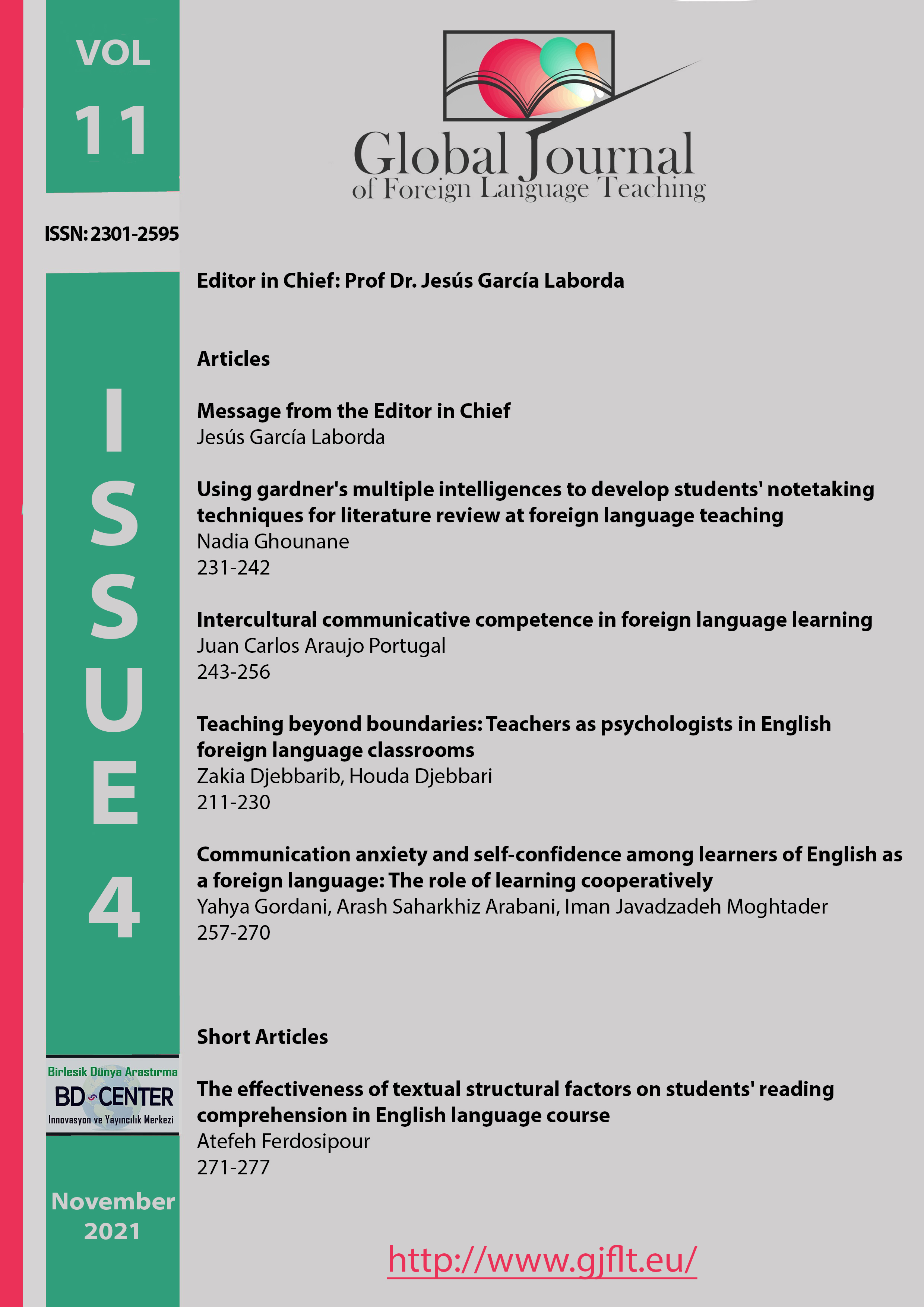Intercultural communicative competence in foreign language learning
Main Article Content
Abstract
The importance of teaching both language and culture inseparably are widely acknowledged by both instructors and students. As a result, new concepts such as intercultural communicative competence have emerged. This means that this new skill has to be promoted and fostered so that students can develop it and interact with other people effectively in a more culturally diverse setting. This paper aims to analyse the role of this new competence in foreign language learning, which is characteristic of 21st-century citizens. The study, therefore, conducts a literature review. In this process, teachers, and to a lesser extent coursebook, play a paramount role. Even though all the agents involved in the teaching-learning process value its importance, there are some factors such as a lack of appropriate training on the part of teachers, inadequate content and materials contained mainly in coursebooks, and effective ways of assessment, which prevent the development of this new 21st-century skill.
Keywords: Awareness; culture; development; intercultural communicative competence; interculturality
Downloads
Article Details

This work is licensed under a Creative Commons Attribution 4.0 International License.
Authors who publish with this journal agree to the following terms:- Authors retain copyright and grant the journal right of first publication with the work simultaneously licensed under a Creative Commons Attribution License that allows others to share the work with an acknowledgement of the work's authorship and initial publication in this journal.
- Authors are able to enter into separate, additional contractual arrangements for the non-exclusive distribution of the journal's published version of the work (e.g., post it to an institutional repository or publish it in a book), with an acknowledgement of its initial publication in this journal.
- Authors are permitted and encouraged to post their work online (e.g., in institutional repositories or on their website) prior to and during the submission process, as it can lead to productive exchanges, as well as earlier and greater citation of published work (SeeThe Effect of Open Access).
